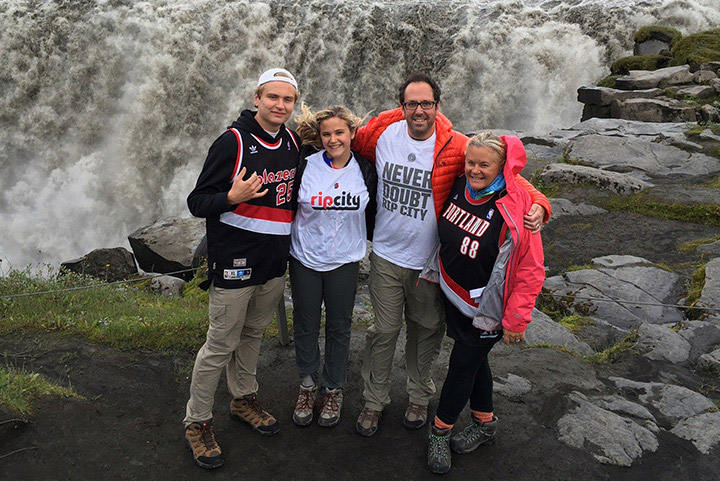Embrace Tomorrow: A Fresh Start Awaits You!

In June 2019, after a triumphant tennis match, Abby Pezzulo, a vibrant 43-year-old, faced a life-altering diagnosis: a pancreatic neuroendocrine tumor (PNET). Despite feeling unwell for over a year, it took a series of medical investigations to uncover the truth behind her chronic fatigue and severe anemia, which was ultimately linked to the tumor. Abby’s journey highlights the importance of perseverance and the quest for answers in the face of daunting health challenges.
Early Symptoms and Diagnosis
Abby’s health troubles began in March 2018 when she was diagnosed with bleeding ulcers. Initially thought to be caused by an overuse of over-the-counter pain relievers, these ulcers were, in fact, a symptom of the underlying tumor. Despite undergoing treatment, her anemia persisted, requiring multiple blood transfusions and iron supplementation.
In Spring 2019, following a colonoscopy and two endoscopies, doctors discovered a nodule on her intestine. A biopsy confirmed the presence of neuroendocrine cancer, while a subsequent CT scan revealed the tumor in her pancreas.
Comprehensive Treatment Plan
To tackle her diagnosis, Abby chose to receive treatment at the esteemed Massachusetts General Hospital in Boston. Here, she connected with Dr. Jeffrey Clark, an oncologist, and Dr. Motaz Qadan, a surgical oncologist. Abby began a chemotherapy regimen that lasted two months, consisting of capecitabine (Xeloda) and temozolomide (Temodar), supplemented with Zofran to manage nausea.
While chemotherapy left her fatigued, Abby discovered that physical activity, including tennis and acupuncture, helped alleviate her symptoms.
Surgical Intervention: The Whipple Procedure
After her chemotherapy, Abby’s doctors evaluated the tumor’s response. Although it hadn’t shrunk, her blood tests indicated a favorable biochemical reaction. On November 11, 2019, Dr. Qadan performed a Whipple procedure, believing that the tumor was near the portal vein. Post-surgery, Abby received the uplifting news that she was cancer-free. Remarkably, she returned to work just five weeks later.
Genetic testing revealed that Abby did not carry the MEN1 mutation, a condition often linked to PNET, leading Dr. Clark to conclude that her diagnosis was simply a matter of "bad luck."
Life After Cancer: A New Normal
Post-surgery, Abby faced the challenge of diabetes due to the loss of a significant portion of her pancreas. However, with the guidance of a nutritionist and lifestyle adjustments, she successfully managed her blood sugar levels, achieving better health than before her illness.
Abby’s positive outlook played a crucial role in her recovery. She remained active during treatment, embracing activities like boxing and tennis to enhance her physical and mental well-being.
Embracing Hope and Resilience
Despite the hardships, Abby maintains an optimistic perspective. She believes that every step taken to combat cancer is a step in the right direction. Now, two years cancer-free, she inspires others by sharing her journey and emphasizing the importance of hope.
Her mantra, inspired by Ralph Waldo Emerson—“Tomorrow is a new day”—reminds her that advancements in research could lead to new treatments or even cures for pancreatic cancer.
To hear more about Abby’s inspiring story, check out her feature in “Better Than Ever.”
Abby’s journey is a testament to resilience, hope, and the unwavering human spirit in the face of adversity.






